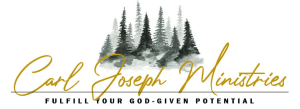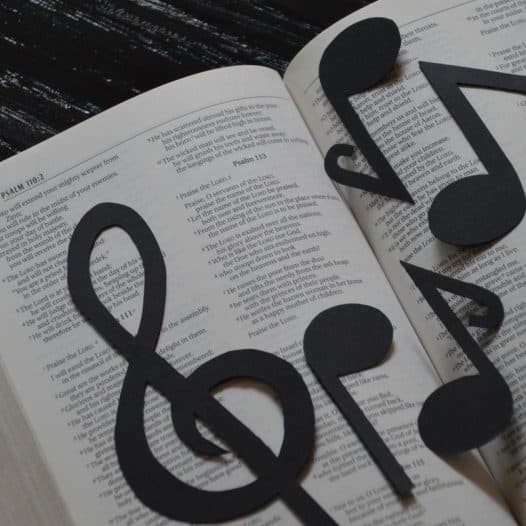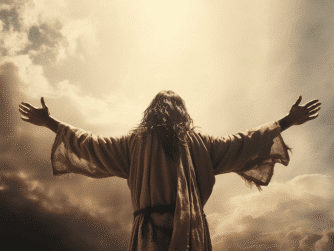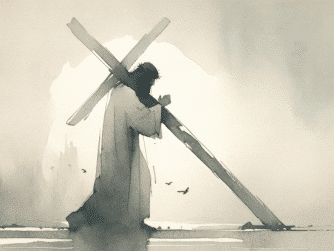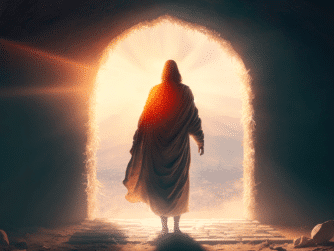The Book of Psalms has been a source of inspiration for Carl down the years. It is also where he finds himself the most, when seeking God’s direction for his life. He now shares some of the more treasured psalms on a personal level and historical psalms of notoriety. Psalms were meant to be sung, and their lyrical cadence offers many opportunities for worship in our daily devotionals. It is believed that King David authored the majority of the psalms. This broadcast serves as an introductory overview of the context and thematic structure of this famous book, which includes Psalm 1, with many more psalms to follow. Join Carl now…
Here is a complete transcript of the broadcast (below)…
Friend, today we will discuss the book of Psalms, and this serves as an introductory broadcast to the Psalms in Collective, 150 chapters or books that are nestled in the middle of your old King James Bible there. These psalms were meant to be sung. David, of course, would have authored the majority of them. About 73 are attributed to him, and with psaltery in hand and or harp, he would sing praises to God, a heart of worship and praise is the very source of these psalms we are about to read.
And of course, I will cover some of the more famous psalms, Psalm 123, Psalm 91, Psalm 100, etc. But friend, there are psalms that have touched me personally. On a visceral level, I have been touched by the Heavenly Father in my quiet time, as my devotional time often leads to one of several books, primarily the psalms. If I want to hear from God for myself, friend, I go to the psalms. And that’s how he speaks to me quite a lot, and also through the Gospels and the book of Isaiah, through the book of Proverbs also. But I’d say my main go-to is the book of Psalms, because friend, worshiping and praising God in your private time is absolutely essential.
If you want to be a Christian that is going to live out the calling God has for you, because it’s in this union of praise and worship, he speaks to you. That still small voice within confirming the words that are written in the pages of your old King James Bible, friend. Now, the book of Psalms is the largest and perhaps the most widely used book in the Bible. It explores the full range of human experience in a very visceral and personal way. It’s 150 songs run from creation through the patriarchal times, theocratic, monarchical, exilic and post-exilic periods. And of course, this is talking about the time of Moses.
The tremendous breadth of subject matter in the Psalms includes diverse topics, such as war, peace, worship, judgment. There are messianic prophecies, praise, and lament, and of course, joy and jubilation. The Psalms were set to the accompaniment of stringed instruments and served as the temple hymn book and devotional guide for the Jewish people. It came to be known as the Sefer Tehillim, which is the book of praises or translated that way, because almost every Psalm contains notes of praise to God. Now, let’s discuss briefly the authors of the Psalms. There are 73 attributed to David.
Then we have 12 written by Asaph, 11 to the sons of Korah, 2 to Solomon and 1 to Moses, 1 to Ethan and 50 are anonymous. But of course, of the anonymous Psalms, we believe that David probably penned most of those. And of course, David was a warrior. He was brave. He was a military genius and a brilliant statesman who led his nation to its pinnacle of power. He was a poet, a musician and a lover of God. David’s creation of the Psalms was in reality a far grander accomplishment than his creation of the kingdom. The book of Psalms is one of the noblest monuments of the ages. In the Psalms, the real character of David is portrayed, and in them God’s people are a pretty fair picture of themselves, including the struggles they have, their sins, their sorrows, their aspirations, their joys and their failures and victories.
Again, it’s basically a macrocosm of life itself. Now, did you know that Jesus was very fond of the Psalms? He quoted them often. He quoted Psalm 22, Psalm 31, and you can find those references in Matthew 27 and Luke 23, and many things in the Psalms referred to Jesus himself. W.E. Gladstone said of the Psalms, All the wonders of Greek civilization heaped together are less wonderful than is this simple book of Psalms. Now, the Psalms are arranged into five books. The first segregation is Psalm 1 through 41, then Psalm 42 through 72, then 73 through 89, Psalm 90 through 106, and Psalm 107 to the very end.
Psalm 119 is the longest Psalm, also the longest chapter in the Bible. Psalm 117 is the shortest Psalm, also the shortest and middle chapter of the Bible. Psalm 118 verse 8 is the middle verse of the entire Bible. But friend, these Psalms were meant to be sung. Think about it. Moses sang and taught the people to sing. He does this in Exodus 15, Deuteronomy 32. Israel sang along the journey to the promised land. Deborah and Barak sang praises to God. David sang with all of his heart. Hezekiah’s singers sang the words of David. Nehemiah’s singers sang loudly.
Jesus and the disciples sang at the Last Supper. And yes, friend, Paul and Silas sang in prison. Why? Because praise and worship is a weapon. And don’t forget, in heaven, 10,000 times, 10,000 angels sing, and the whole redemption of creation sings the chorus. We are going to be singing a lot in heaven, friend. It’s going to be loud up there, and I can’t wait. And of course, some of the instruments that would have been used in that time would be the flute, the pipe, the horn, the trumpet, the beaton, the timbrel, the cymbal, the psaltery, and David had an orchestra of 4,000 for which he made instruments for the temple. But let’s get down to what Psalms is actually about, friend. It’s about trust, praise, rejoicing, and mercy. Those are the four things that are covered in Psalms mainly. Trust, friend, is the foremost idea in the book of Psalms. Over and over again, David is literally living in God.
He’s sharing his concerns about his enemies overtaking him. He has praise always on his lips. David was always asking God for something and always thanking him for something with all of his soul and might. Rejoice is another favorite word in the Psalms because it basically means shout for joy, and of course, mercy occurs hundreds of times. David often spoke of the justice, righteousness, and wrath of God, but God’s mercy was the thing which he glorified. Now, some of the more famous Psalms would be Psalm 2, 8, 16, 22, 45, 72, 89, 110, 118, and 132. Why? Because they are messianic Psalms. They talk about the deity and universal reign of the Messiah. It talks about Christ’s suffering, friend, particularly in Psalm 22, the royal bride, the eternal throne, the glory and eternity of Christ’s reign, God’s oath for endlessness of Messiah’s throne. It talks about Christ being rejected by his nation’s leaders, and so on and so forth. All of these are captured within the Psalms, so the book of Psalms is an important prophetical book. What’s interesting, friend, is that David has his own beatitudes which mirror Christ’s in many ways.
Through various Psalms, he mentions things like the fear of the Lord, the man whom God chastens, the man who has the refuge in the Lord, the man who has his strength in the Lord. It’s basically a transposition of humility and knowing that God is going to take care of you, not will, is, present tense. All these Psalms are present tense. God is your refuge. He is your strengthener. He is your high tower. Right now. And if you have the faith to believe that, friend, God will take care of you. Now, friend, I want to talk to you about the structure of these Psalms. Unlike much Western poetry, Hebrew poetry is not based on rhyme or meter, but on rhythm and parallelism. The rhythm is not achieved by balanced numbers of accented and unaccented syllables, but by tonal stress or accent on important words. In other words, emphasizing certain aspects as the Psalm divulges.
In parallelism, the poet states an idea in the first line, then reinforces it by various means in the succeeding lines. The most common type is a synonymous parallelism, in which the second line essentially repeats the idea of the first. So, there’s this rhythm to the Psalms where they’re often repeating themselves as they go. So, the first verse will say something. The second verse will repeat the themes of the first verse and so on. So, it’s embedded into your memory. Almost a key is being granted by God to embed these Psalms into your memory without knowing. So, there are Psalms of lamentation, thanksgiving, Psalms of trusting in God, hymns that include Psalms on the enthronement of Jehovah God, and conviction of the Holy Spirit. Now there’s this interesting term, Selah, which occurs 71 times in the Psalms and three times in the book of Habakkuk.
But we think that this term Selah is basically a notation, signaling an interlude or a change in musical instruments. And some people have often asked that question, what is Selah and what does it mean? Some suggest just as Amen concludes a prayer to seal it, or basically Amen is so be it. Selah indicates a moment to reflect upon that has been said or to give a brief break in the flow. So, it’s really an invitation to ponder or think about what has been said. So let me now recite the very first Psalm, which has a promise in itself. “Blessed is the man that walks not in the counsel of the ungodly, nor stands in the way of sinners, nor sits in the seat of the scornful, but his delight is in the law of the Lord, and in his law does he meditate day and night. He shall be like a tree planted by the rivers of water that brings forth fruit in season. His leaf shall not wither, and whatsoever he doeth shall prosper. The ungodly are not so, but are like the chaff which the wind drives away. Therefore, the ungodly shall not stand in the judgment, nor sinners in the congregation of the righteous. For the Lord knows the way of the righteous, but the way of the ungodly shall perish.” Friend, this sets the tone that biblical meditation is a key component for successful Christian living.
Those men and women who have stuck close to God and they have meditated day and night in His Scriptures will be prosperous by God’s definition, not the world’s. Now this term blessed, the Hebrew word is the plural, and it means, oh, how very happy. People who focus on the Lord, reading, I say it every time, one chapter of the Bible a day, friend, just one. It could be a short psalm. It could be a long Levitical chapter. Whatever it is, read one chapter. It will change your life, and it says in this psalm, friend, for those who are willing to take it at face value, with childlike faith, that there is a blessing on the man who meditates day and night in God’s Word. He will be spiritually blessed. He will be physically blessed.
He will be materially blessed. But friend, the ungodly are like the chaff. When the winnowing fork comes, they blow around, and they are separated from the true wheat. We are the wheat, not the chaff. We will stand in a time of travail and test because we are like trees, rooted and grounded in Christ, feeding on the rivers of living water, and our fruit shall remain. In truth, a good man refuses to walk in the advice of sinners. He is not comfortable standing for long periods in the fellowship of the scornful or the sinner. We are to be separated and set apart and offer wisdom to the sinner or the scornful as the Lord leads. It is believed that the psalms themselves, their authorship ranged from 1407 B.C. right the way through to 586 B.C. So, friend, that concludes our summary of the book of Psalms. I look forward in the coming weeks and months to going over some key psalms with you that have affected my life, changed my life, and they will change yours also. I am excited for what is to come. See you soon.
https://carljosephministries.com/jesus-the-name-above-every-name/
https://overviewbible.com/psalms/
Title: Book of Psalms: Introduction
Related keyword searches:
